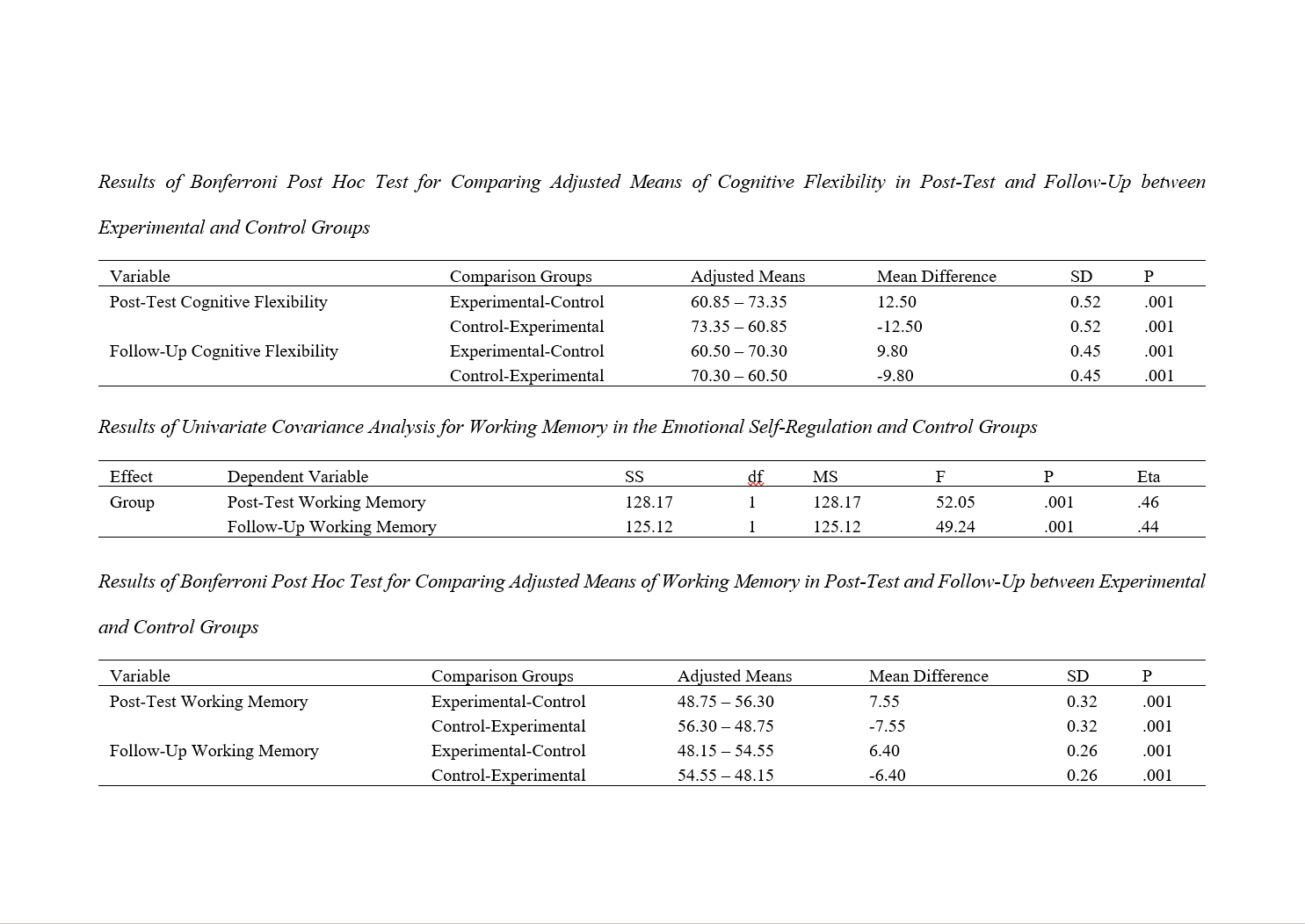Investigating the Effectiveness of Mindfulness Skills on Cognitive Flexibility and Working Memory in Ninth-Grade Students
Keywords:
Mindfulness skills, cognitive flexibility, working memoryAbstract
Objective: The present study aimed to investigate the effectiveness of mindfulness skills training on cognitive flexibility and working memory.
Methods and Materials: The research method was quasi-experimental with a pretest-posttest and follow-up design with a control group. The statistical population of this research included all ninth-grade secondary school students in the city of Jajarm during the academic year 2023-2022, who were enrolled in public, non-public (non-profit), exemplary public, Martyr, and gifted schools. A total of 60 subjects were selected through cluster sampling and randomly assigned to two equal groups of 30 participants (an experimental group and a control group). Data were collected using the Working Memory Test by Daneman and Carpenter (1980) and the Cognitive Flexibility Questionnaire by Dennis and Vander Wal (2010). Data analysis was performed using SPSS software and multivariate analysis of covariance (MANCOVA).
Findings: The results indicated that mindfulness skills training had a significant effect on the cognitive flexibility of ninth-grade students (P < .05), and it also had a significant effect on the working memory of ninth-grade students (P < .05).
Conclusion: In conclusion, this study demonstrates that mindfulness skills training significantly enhances cognitive flexibility and working memory in ninth-grade students. These findings underscore the potential benefits of integrating mindfulness practices into educational programs to support students' cognitive development and adaptive functioning in academic and everyday environments.
Downloads

Downloads
Additional Files
Published
Submitted
Revised
Accepted
Issue
Section
License
Copyright (c) 2024 Ali Akbar Solati , Masumeh Eslami, Zahra Ejadi (Author)

This work is licensed under a Creative Commons Attribution-NonCommercial 4.0 International License.








